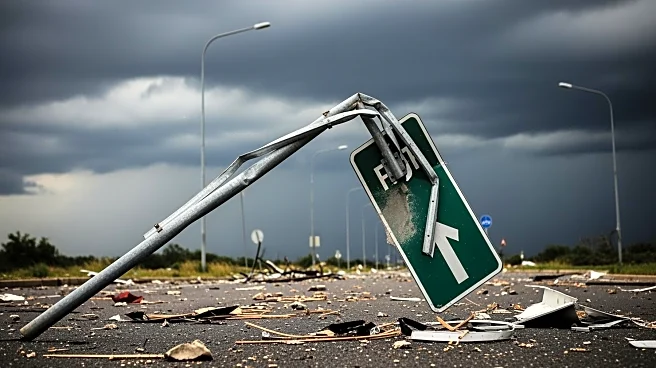What's Happening?
An unprecedented tornado tore through the state of Parana in southern Brazil, killing six people and injuring over 750. Governor Ratinho Júnior described the event as a catastrophe, with winds reaching 250 km/h (155 mph) and affecting 90% of residences
and commercial buildings in Rio Bonito do Iguaçu. The tornado caused widespread destruction, including collapsed silos and gas stations. A state of public calamity has been declared, allowing for emergency measures and federal support. Rescue operations are ongoing, with one person still missing.
Why It's Important?
The tornado's impact underscores the vulnerability of regions to extreme weather events and the importance of disaster preparedness. The declaration of public calamity enables resource mobilization and federal assistance, crucial for recovery efforts. The event may prompt discussions on climate change adaptation and infrastructure resilience. The economic implications include potential costs for rebuilding and recovery, affecting local economies and government budgets.
What's Next?
Authorities are expected to continue search and rescue operations and assess the full extent of the damage. Recovery efforts will focus on rebuilding infrastructure and providing support to affected communities. The government may consider implementing stricter building codes and enhancing early warning systems. The situation may prompt discussions on improving disaster management policies.
Beyond the Headlines
The tornado's devastation may lead to increased awareness and discussions on climate change and its effects on weather patterns. Ethical considerations regarding resource allocation and support for vulnerable communities may arise. Long-term shifts in policy and public awareness about environmental issues could be triggered by this disaster.

















